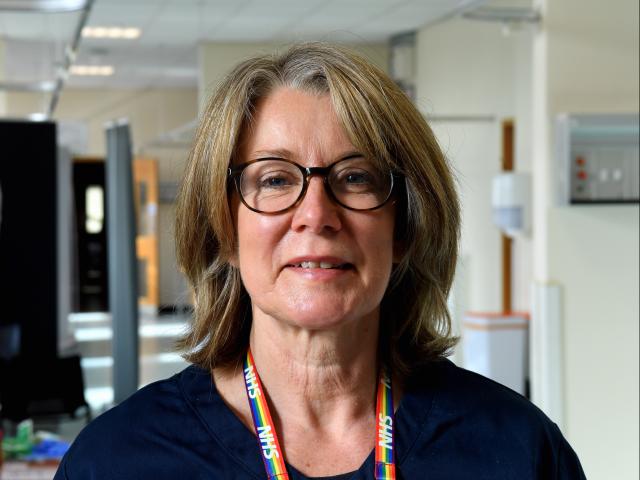
How Wales gave ordinary people a vital say in research
28 March
When Barbara Moore started her nursing career in the 1970s, health and social care research wasn’t a big feature in her training manual. And, although doctors and nurses were asking patients and members of the public for their opinions on research studies, it wasn’t anything like we know today.
There’s always been some form of this work since the NHS was launched in Wales in 1948; it started with local councillors sitting on health authority boards and then progressed to the formation of Community Health Councils.
It wasn’t until the late 1990s when having public input became a mandatory core commitment of the NHS, ensuring patients and the public had a say on their treatment as well as healthcare policies. However, this requirement in clinical research has happened much more recently.
Wales has led the way for a long time in developing good practice for having the public help with research and has played a major role in defining UK-wide standards.
As we think about where we would be without research, we speak to Barbara about the changes she’s seen – going from caring for patients on the ward to becoming a champion for public voices in research.
‘I haven’t looked back’
Barbara, who retired in 2021, was the senior public involvement and engagement manager at Health and Care Research Wales, a role she began in 2015.
“I started nursing in the 70s and I can’t say that research was a focus at all during my training,” remembered Barbara.
“Having said that, nursing was absolutely about caring for people and doing the things that they couldn’t manage to do themselves.
“A lot of it was around tasks and I don’t ever recall being told about evidence base but I do remember the treatments that were given to people and over the years I obviously saw those treatments improve.”
Barbara was working on the wards and in out-patients when she became aware “there were people called research nurses, and I was very interested in what they were doing”.
“An opportunity came up for me to apply for a job, and I was encouraged by the staff in out-patients, where a lot of the activity with research seemed to be going on, and I haven’t looked back I suppose,” said Barbara.
‘Naïve’ about public voices
In 1999, Barbara became a research nurse at Velindre Cancer Centre where her role involved explaining standard treatment to patients as well as making sure they understood what was involved in a study.
“I have to say at that point my focus was on participation,” commented Barbara, “and I was pretty naïve to how the public might have helped to develop some of those studies that I was talking to patients about, certainly about the way it was communicated.
“One of the areas that the public do have a big input is into the written patient information, which patients receive about specific studies, and I have seen that change a lot since I first started. I’m sure much of that can be attributed to the public reviewing that information and helping the researchers to put things into language that is understood.”
Barbara’s career saw her take up roles with Cancer Research UK, where she recruited patients into trials but also supported patients to lobby parliament and worked with the media to ensure patients’ voices were heard.
Eventually Barbara worked closely alongside the team that were involving members of the public in research.
“So, that is members of the public who are not participating in research studies but members of the public who are working alongside the researchers to develop the research ideas and beyond – the whole research journey.
“It is very much about ensuring the needs and concerns of the people who research is going to affect, and the lives it’s hopefully going to improve, are heard.
“That’s how my career took me down the path of being very much about managing, facilitating and supporting members of the public to help with research within the Health and Care Research Wales community.”
Since Health and Care Research Wales' launch on 14 May 2015, the team have been championing a culture of all research being ‘with the public, for the public’.
Setting the standards
Whether it’s helping to decide which studies should be funded – or making sure patient information is easy to read and understand – the public can work alongside researchers at every stage of the process.
“I think that one of the biggest changes is there’s now an expectation from funders of research,” added Barbara, “when funding applications are presented to them, they expect to see that members of the public have helped with the development of that funding bid and the plans for the study.
“Ideally no research should really be funded without input from the public actually happening.”
If you would like to help with research, you can join our public community and sign-up to our weekly bulletin to get research opportunities delivered straight to your inbox.